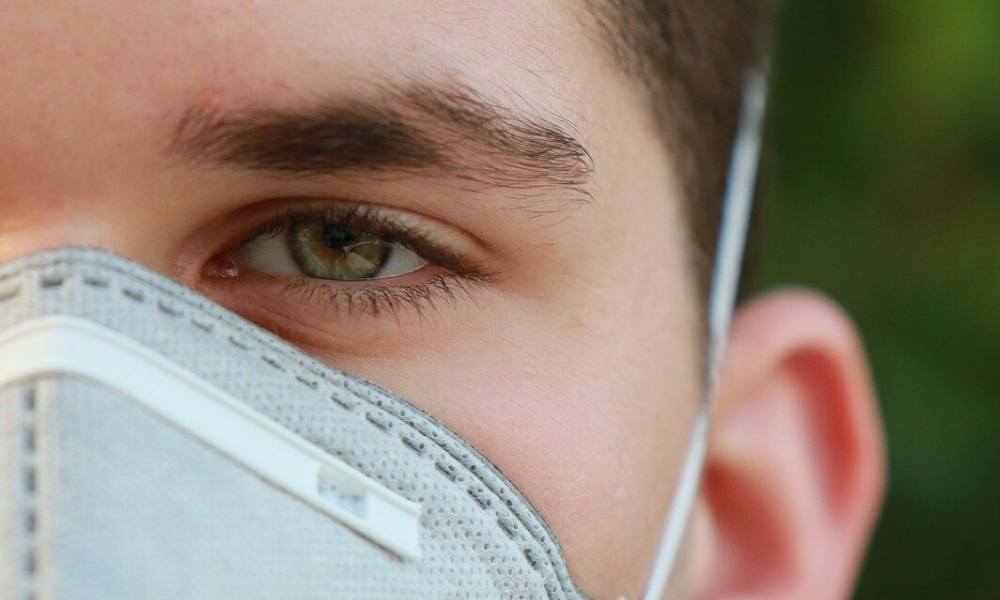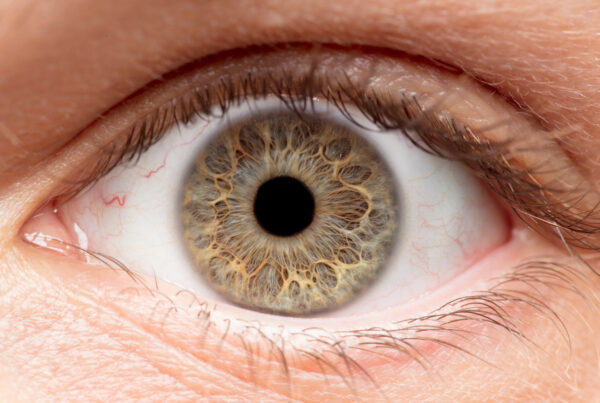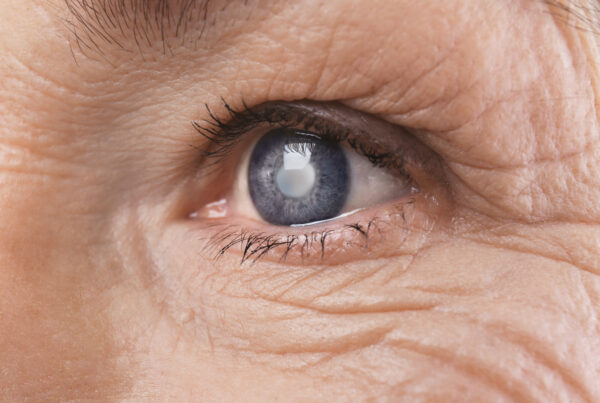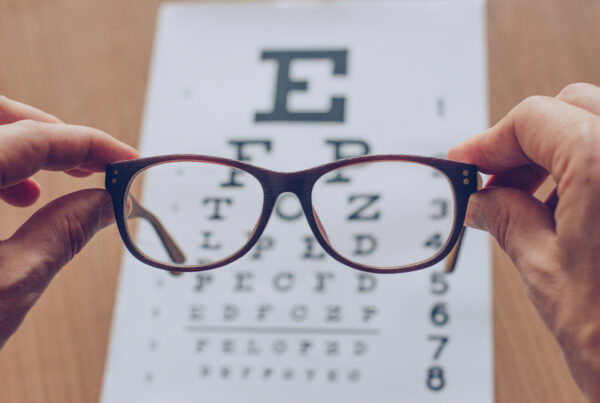
If you’re like me, you’re getting sick (pun intended!) of all the news, emails, websites, postings and broadcasts about the COVID-19 Pandemic. Or maybe you’re not! If you got past the title of this blog, and you’re still reading it, maybe you do want to find out if there are any eye problems associated with this viral disease.
Well the quick and easy answer is that there are no reports of serious eye problems associated with the COVID-19 infection. Now you can go back to your home sheltering, playing with the pets, or with your computer or smartphone. Staying away from everyone else and maybe working on the yard, spring cleaning, or binge watching on your streaming service.
Or maybe you’ll read some more and find out some things people have learned about the COVID-19 virus and your eyes.
Just as many other common virus infections like influenza, the COVID-19 virus can be associated with a type of viral pink eye. Redness, puffiness, watering, and irritation in both eyes are symptoms of this form of pink eye. Other viruses, like herpes virus, mumps, measles, and shingles, can cause infections in your cornea or inside your eye that can lead to scarring and damage to your vision. This scarring and other damage has not been reported with COVID-19 virus.
Also, just like with the pink eye that is found in school children and with influenza, there is no treatment needed for this viral pink eye. You can use allergy eyedrops to ease any itching or make your eyes look less red or puffy, but they don’t make the problem go away or get better any faster or safer. There is no need to avoid contact lens wear so long as your eyes are not showing signs of the pink eye condition that some people get with COVID-19. But if you are a contact lens wearer who develops the pink eye condition, certainly discard your lenses, solutions, and case, to avoid contamination with reuse. Tests have found COVID-19 particles in the tears and outer tissue (conjunctiva) of eyes in people who have known COVID-19 disease, so it is assumed that you could transmit the virus to others by having someone contact your tears or eye tissue, and then spread this to themselves. The reality is that it’s probably easier to spread the virus with nasal or mouth secretions to hands or other surfaces, but still, it’s smart to be safe about contact with tears, too.
Knowing this, you can expect your eye doctors and the staff in your clinics to be constantly using hand sanitizer whenever they touch your eyes and will disinfect any instruments that contact you or your eyes when you have an eye exam. This should be common practice in most eye clinics anyway, but especially now with a more dangerous virus around.
Since the eye clinics in town are mostly closed, except for emergencies, my staff and I spend more time answering questions from our patients by phone or email. Some of the more common questions and answers may be of interest to you.
People often feel that because the eye clinics are closed, it’s not safe to have your eyes checked or to see your eye doctor for routine or scheduled visits. Actually, the safety issue is keeping people from close contact with others who may have the COVID-19 virus, social distancing. We all know how long you often wait to see the doctor in a medical clinic and sitting in a chair in the waiting room full of others, is not considered a safe distancing practice. So, with clinics starting back to routine care, office visits will be spaced more widely apart to avoid crowding and will keep a safe distance between patients in the clinic. This means some will wait in their car until called in for their visit to minimize time in the office waiting area. It may also mean that fewer people will get appointments right away, and you may need to wait a long time for routine eyecare. Patients coming into the clinic will be pre-screened for risk factors, with questions about travel and contact, and will have temperatures monitored for any sign of fever. You may be asked to wear a face mask while in the clinic. We want our patients as well as our doctors and staff to be safe.
It is still very important to monitor certain eye conditions that can lead to loss of vision if not detected in a timely manner. Having eye exams to monitor for these conditions is still critical to keeping your eyes healthy and safe. So, we don’t want to delay checking for glaucoma, diabetic retinopathy, macular degeneration, and other progressive eye diseases. At this time, we have no reason to believe that the COVID-19 virus effects any of these conditions, but if you don’t have regular exams to monitor your eyes, these conditions can progress and cause problems when not treated in a timely and effective way.
Some have asked me about any risk with eye surgery, because they know that routine cataract surgery has been suspended over the last several weeks and is just now about to start back. The reason for the suspension of routine cataract surgery was to preserve masks, gowns, and other equipment in anticipation of greater need at local hospitals treating patients sick with COVID-19 diseases, not because of any risk with the eye surgery itself. So, as we get back to scheduling routine cataract surgery when the shortage of equipment for hospitals is eased, you can feel safe in having your surgery without any additional risk due to COVID-19. Certainly, if you feel no need to have cataract surgery right away and can safely wait until next Fall or Winter, you can choose to delay it until then. You will see all the same precautions about social distancing in the ASC waiting areas and holding areas, so don’t be surprised by that.
A special concern that some people have asked about, relates to corneal transplant surgery. Every day we hear about deaths from COVID-19 associated disease, and patients who need corneal transplant surgery are concerned about what might happen if they have a donor cornea from someone who died with COVID-19. At this time, I’m not aware of any reports of any cornea disease treatment complications or added risks due to the COVID-19 Pandemic. The Eye Bank Association of America (EBAA) has established guidelines for the safe acceptance of donor tissue for corneal transplant surgery, and we only use donor tissue from EBAA associated eye banks.
So, let’s all remain safe and remember that we want you to have a lifetime of your best possible vision.
Contact Us


